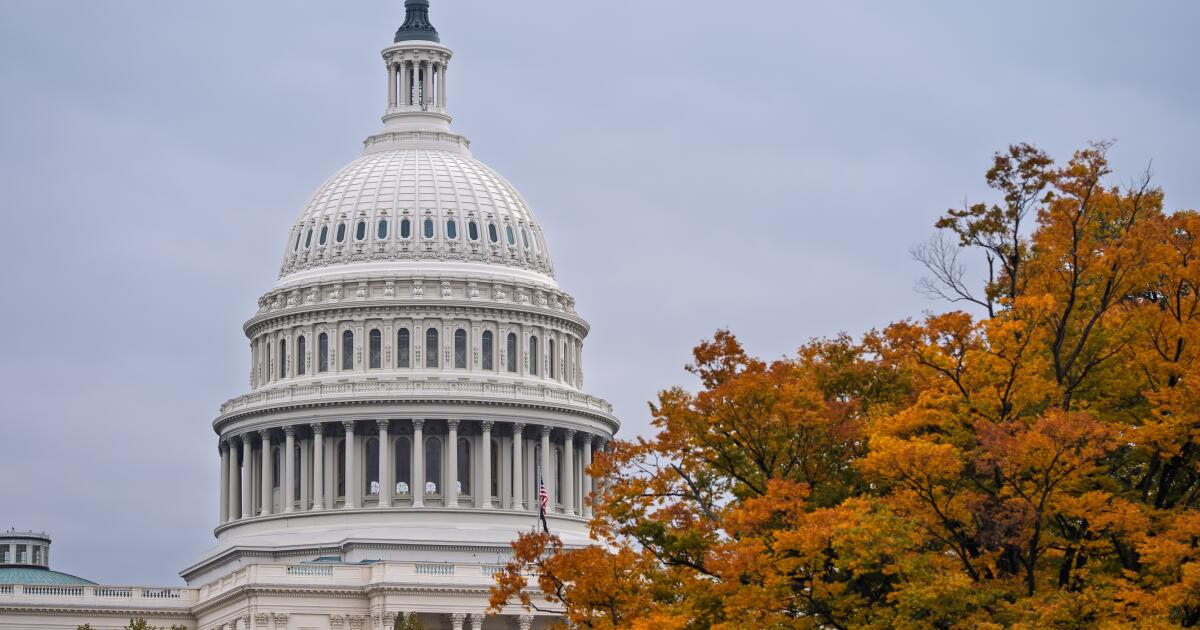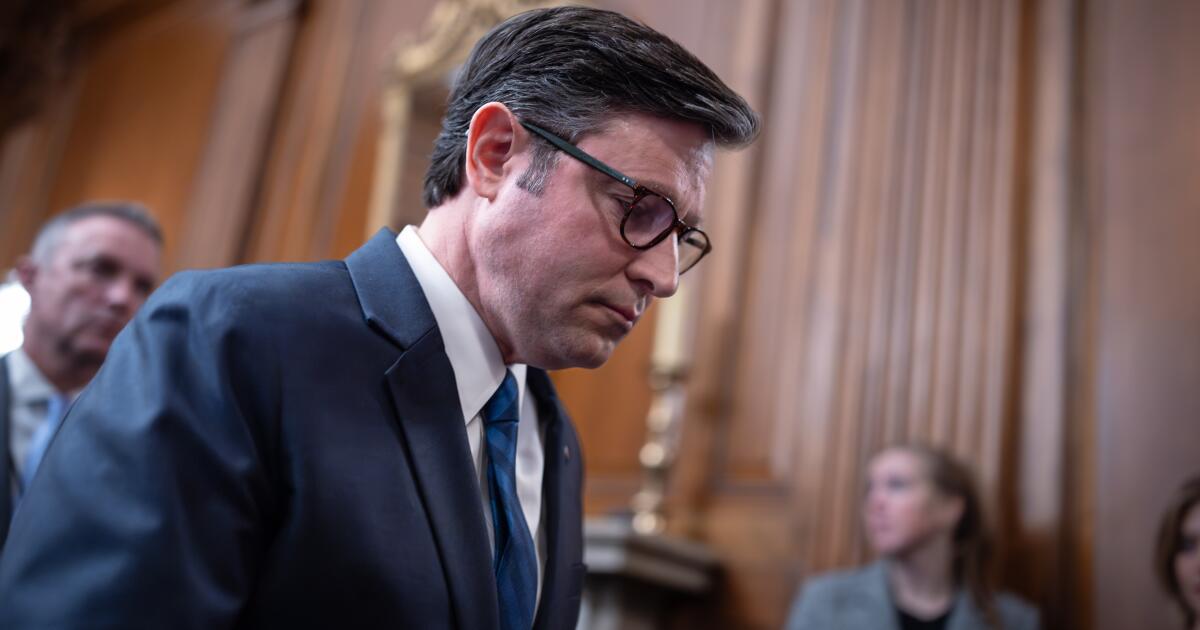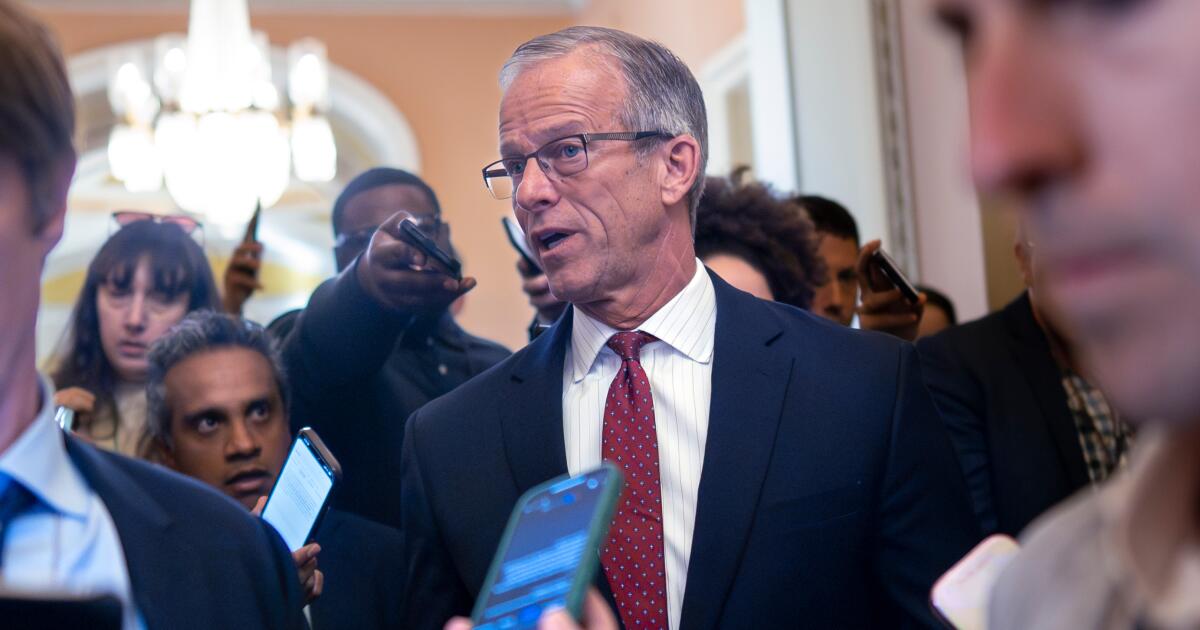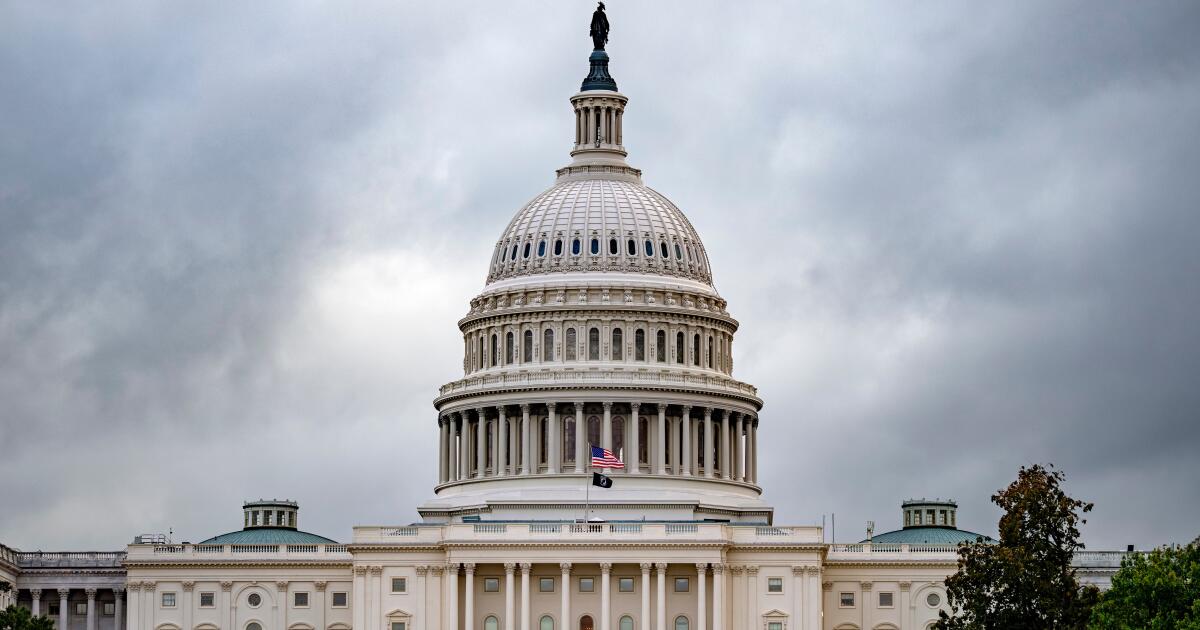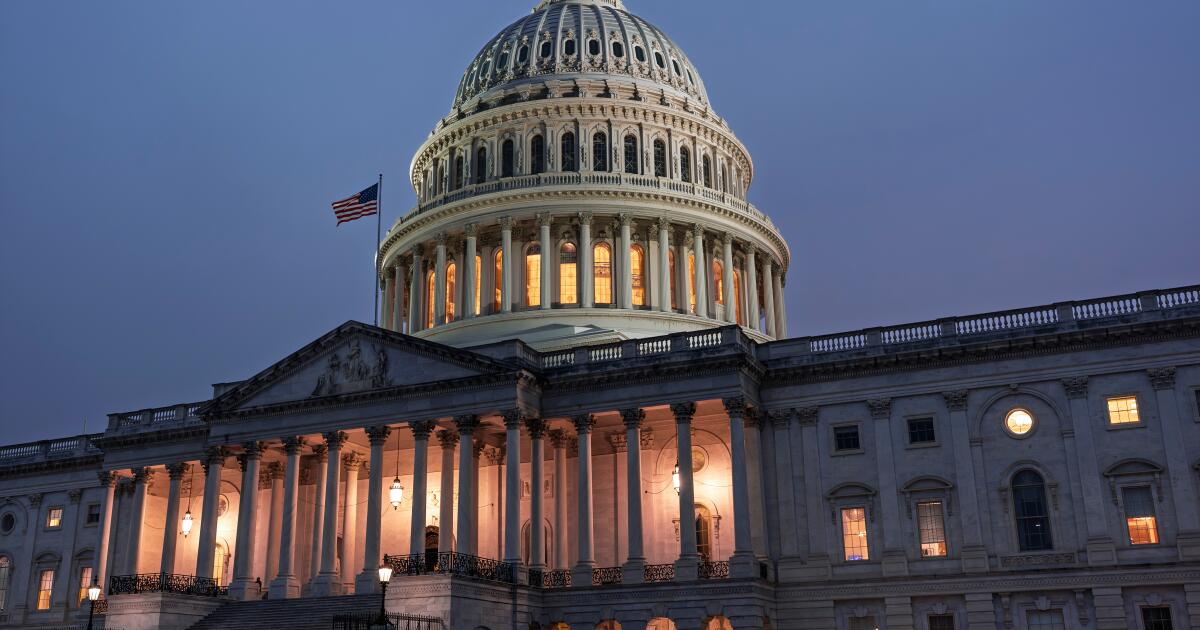Shutdown progress in doubt as Democrats grow emboldened from election wins
WASHINGTON — Elections this week that energized Democrats and angered President Trump have cast a chill over efforts to end the record-breaking government shutdown, raising fresh doubts about the possibility of a breakthrough despite the punishing toll of federal closures on the country.
Trump has increased pressure on Senate Republicans to end the shutdown — now at 37 days, the longest in U.S. history — calling it a “big factor, negative” in the poor GOP showings across the country. Democrats saw Trump’s comments as a reason to hold firm, believing his involvement in talks could lead to a deal on extending health care subsidies, a key sticking point to win their support.
Senate Majority Leader John Thune opened what’s seen as a pivotal day in efforts to end the government shutdown by saying the next step hinges on a response from Democrats to an offer on the table.
“It’s in their court. It’s up to them,” Thune told reporters Thursday.
But Senate Democratic Leader Chuck Schumer held firm in opening remarks Thursday, saying voters “fired a political torpedo at Trump and Republicans” in Tuesday’s election.
“Donald Trump clearly is feeling pressure to bring this shutdown to an end. Well, I have good news for the president: Meet with Democrats, reopen the government,” Schumer said on the Senate floor.
Trump is refusing to meet with Democrats, insisting they must open the government first. But complicating the GOP’s strategy, Trump is increasingly fixated instead on pushing Republicans to scrap the Senate filibuster to speed reopening — a step many GOP senators reject out of hand. He kept up the pressure in a video Wednesday, saying the Senate’s 60-vote threshold to pass legislation should be “terminated.”
“This is much bigger than the shutdown,” Trump said. “This is the survival of our country.”
Senate Democrats face pressures of their own, both from unions eager for the shutdown to end and from allied groups that want them to hold firm. Many see the Democrats’ decisive gubernatorial wins in Virginia and New Jersey as validation of their strategy to hold the government closed until expiring health care subsidies are addressed.
“It would be very strange for the American people to have weighed in, in support of Democrats standing up and fighting for them, and within days for us to surrender without having achieved any of the things that we’ve been fighting for,” said Sen. Chris Murphy, D-Conn.
Meanwhile, talks grind on, but the shutdown’s toll deepens. On Wednesday, the Federal Aviation Administration announced plans to reduce air traffic by 10% across 40 high-volume markets beginning Friday to maintain safety amid staffing shortages. Millions of people have already been affected by halted government programs and missed federal paychecks — with more expected as another round of paydays approaches next week.
Progressives see election wins as reason to fight
Grassroots Democratic groups nationwide touted Tuesday’s election results as voter approval of the shutdown strategy — and warned lawmakers against cutting a deal too soon.
“Moderate Senate Democrats who are looking for an off-ramp right now are completely missing the moment,” said Katie Bethell, political director of MoveOn, a progressive group. “Voters have sent a resounding message: We want leaders who fight for us, and we want solutions that make life more affordable.”
Some Senate Democrats echoed that sentiment. Sen. Bernie Sanders, a Vermont independent who caucuses with Democrats and a leading voice in the progressive movement, said Democrats “have got to remain strong” and should secure assurances on extending health care subsidies — including “a commitment from the speaker of the House that he will support the legislation and that the president will sign.”
Still, how firmly the party remains dug in remains to be seen. Some Democrats have been working with Republicans to find a way out of the standoff, and they held firm after the election that it had not impacted their approach.
“I don’t feel that the elections changed where I was,” said Sen. John Hickenlooper, D-Colo. “I still feel I want to get out of the shutdown.”
Some Republicans also shared in Trump’s concerns that the shutdown is becoming a drag on the party.
“Polls show that most voters blame Republicans more than Democrats,” said Sen. Josh Hawley, a Missouri Republican. “That’s understandable given who controls the levers of power.”
Trump sets another shutdown record
While some Democrats saw Trump’s comments on the shutdown Wednesday as evidence he’d soon get more involved, he’s largely stayed out of the fray. Instead, the talks have intensified among a loose coalition of centrist senators trying to negotiate an end to the shutdown.
Trump has refused to negotiate with Democrats over their demands to salvage expiring health insurance subsidies until they agree to reopen the government. But skeptical Democrats question whether the Republican president will keep his word, particularly after his administration restricted SNAP food aid despite court orders to ensure funds are available to prevent hunger.
Trump’s approach to the shutdown stands in marked contrast to his first term, when the government was partially closed for 35 days over his demands for money to build a U.S.-Mexico border wall. At that time, he met publicly and negotiated with congressional leaders. Unable to secure the money, he relented in 2019.
This time, it’s not just Trump declining to engage in talks. The congressional leaders are at a standoff, and House Speaker Mike Johnson, R-La., sent lawmakers home in September after they approved their own funding bill, refusing further negotiations.
Johnson dismissed the party’s election losses and said he’s looking forward to a midterm election in 2026 that’ll more reflect Trump’s tenure.
In the meantime, food aid, child care money and countless other government services are being seriously interrupted. Hundreds of thousands of federal workers have been furloughed or are expected to work without pay.
Senators search for potential deal
Central to any resolution will be a series of agreements that would need to be upheld not only by the Senate but also by the House and the White House, which is not at all certain in Washington.
Asked if the House would guarantee a vote on extending health care subsidies if the Senate struck a deal, Johnson said Thursday, “I’m not promising anybody anything.”
Senators from both major parties, particularly the members of the powerful Appropriations Committee, are pushing to ensure the normal government funding process in Congress can be put back on track. Among the goals is guaranteeing upcoming votes on a smaller package of bills to fund various aspects of government such as agricultural programs and military construction projects at bases.
More difficult, a substantial number of senators also want some resolution to the standoff over the funding for the Affordable Care Act subsidies that are set to expire at year’s end.
With insurance premium notices being sent, millions of people are experiencing sticker shock on skyrocketing prices. The loss of enhanced federal subsidies, which were put in place during the COVID-19 pandemic and come in the form of tax credits, are expected to leave many people unable to buy health insurance.
Senate Majority Leader John Thune, R-S.D., has promised Democrats at least a vote on their preferred health care proposal, on a date certain, as part of any deal to reopen government. But that’s not enough for some senators, who see the health care deadlock as part of their broader concerns with Trump’s direction for the country.
Cappelletti, Mascaro and Jalonick write for the Associated Press.

